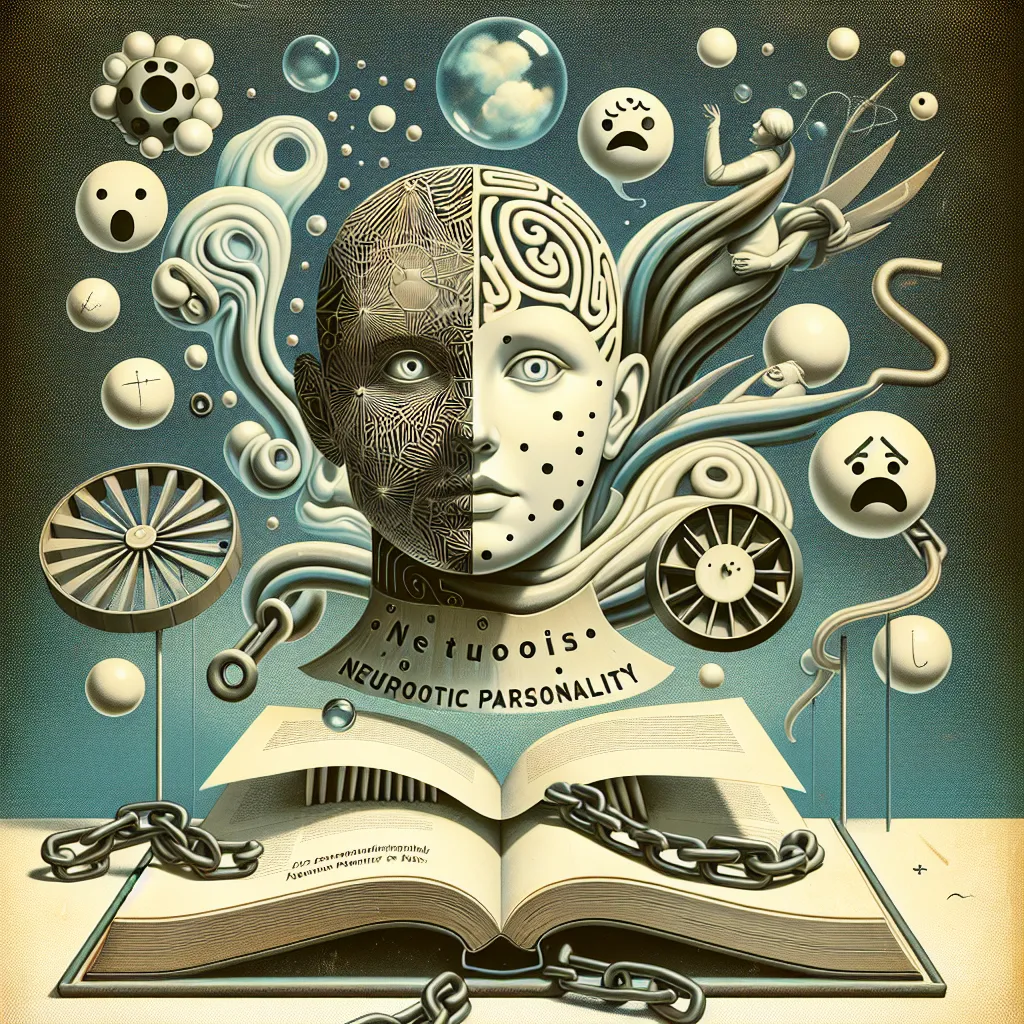Karen Horney’s Revolutionary Ideas on Neurotic Personality
At the turn of the 20th century, the field of psychology was dominated by the ideas of Sigmund Freud, who attributed much of human behavior to unconscious drives and childhood experiences. However, one pioneering psychoanalyst named Karen Horney dared to challenge the status quo with her revolutionary perspective on neurotic personality. Her work not only provided a stark contrast to the prevailing Freudian doctrine but also heralded a burgeoning era of psychological thought that emphasized culture, social conditions, and personal growth.
Karen Horney was born in 1885 in Hamburg, Germany. Throughout her professional life, she demonstrated an uncanny ability to dig deep into the psyche and uncover the subtle dynamics that shape an individual’s personality. Horney’s concept of neurosis is particularly noteworthy, as it veers away from Freud’s biological determinism and towards a more nuanced understanding of environmental and cultural influences.
One seminal aspect of Horney’s work is her theory of neurotic needs. She identified ten particular needs that, when taken to extremes due to anxiety, could result in a neurotic personality. These needs encompass the desire for affection, power, social recognition, and personal admiration, among others. Horney believed that while these needs are universal to some extent, neurotics obsessively cling to them as a way to combat their deep-seated feelings of helplessness and insecurity.
Horney’s theory of the “idealized self” is another cornerstone of her approach. She posited that individuals with a neurotic personality often harbor an unrealistic, glorified image of themselves. They strive tirelessly to live up to this impossibly perfect self-image, which sets them up for continual self-criticism and disappointment. According to Horney, the gap between the real self and the idealized self is a primary source of inner conflict and psychic pain for many people.
In direct opposition to Freud’s ideas, Horney introduced the concept of “womb envy,” which confronts the Freudian theory of “penis envy.” She argued that men experience unconscious jealousy over women’s ability to bear and nurture children, which can give rise to an exaggerated need for achievement and domination. This concept further underpinned her assertion that culturally constructed gender roles play a significant role in shaping personality and, by extension, neurotic patterns of behavior.
Another revolutionary idea presented by Horney is the “tyranny of the should,” a phrase she used to encapsulate the oppressive grip that unrelenting internal demands can have on a person’s life. She explained how individuals create an arbitrary set of “shoulds” or rules for themselves that are impossible to fulfill, leading to a life fraught with restriction and self-recrimination.
Horney also identified three neurotic solutions or coping strategies that individuals use to deal with the anxieties of life: moving toward people, moving against people, and moving away from people. Each of these strategies can be overused and can represent an attempt to solve the fundamental human dilemma of isolation and despair. When employed excessively, these stances lead to imbalances and neurotic patterns, such as dependence, aggression, or withdrawal from relationships and society.
Additionally, Horney was a forerunner in the examination of the parent-child relationship and how it influences personality development. She emphasized the importance of genuine warmth, security, and consistent love in the formation of a healthy personality and the prevention of neurotic tendencies. This parental responsibility carries considerable weight in the establishment of an individual’s self-worth and self-concept.
Karen Horney’s contributions to the understanding of neuroses are immensely valuable to the field of psychology, as they illuminate the human struggle with self-concept and the pursuit of authenticity. Her work has inspired countless other psychologists and encouraged the study of various socio-cultural factors that may impact mental health and personality development. Her theory that neuroses are a product of disturbed relationships and cultural pressures rather than intrinsic libidinal conflicts has opened doors for more holistic therapeutic approaches.
Horney’s persistence in exploring interpersonal relationships, self-ideals, and the pressures of society has laid the groundwork for the development of humanistic and existential therapies. Today, her ideas continue to resonate with professionals in the field of mental health, who utilize her concepts to facilitate personal insight, self-acceptance, and psychological growth in their clients.
Moreover, Horney’s challenges to the male-dominated psychological theories of her time were not just an intellectual exercise; they were a courageous stand for gender equality within the field of psychology. This has had a lasting impact on the representation and treatment of women in psychological research and practice, offering a more balanced and comprehensive understanding of human behavior that transcends gender bias.
Karen Horney’s revolutionary ideas on neurotic personality have undoubtedly made an indelible mark on psychology. Her focus on the role of societal and cultural factors in shaping the psyche has redefined our understanding of neuroses and the intricate workings of the human mind. Horney’s efforts to redefine the standards of mental health have brought to light the importance of self-awareness, interpersonal relationships, and cultural contexts in our ongoing quest to comprehend and aid the human condition.
In the digital age, the relevance of Horney’s ideas remains unwavering. Her trailblazing work continues to inform modern psychological thought and therapy. From online articles and academic research to social media discussions, the principles espoused by Karen Horney endure, captivating new generations of psychologists and psychology enthusiasts alike.
As readers delve into the vast cache of knowledge on neurotic personalities, Karen Horney stands out as a beacon of innovation and wisdom. Her legacy underscores the value of examining the multifaceted dimensions of human nature and the various elements that contribute to our mental health and wellbeing.
In summary, Karen Horney’s revolutionary ideas have opened up the field of psychoanalysis to a more dynamic and flexible understanding of the neurotic personality. By considering the impact of sociocultural factors and challenging existing Freudian concepts, Horney has paved the way for future psychologists to explore new avenues of thought. Her theories continue to influence current therapeutic practices, underscoring the importance of addressing human needs, interpersonal relationships, and the striving for self-realization. Karen Horney’s work remains a testament to the enduring power of innovative thinking in the journey to unravel the complexities of the human psyche.



Leave a Comment